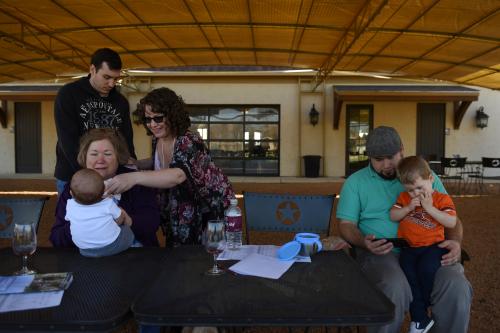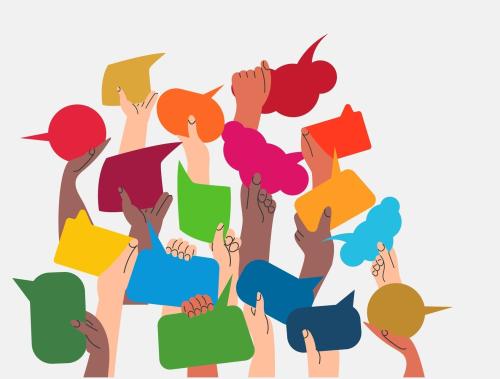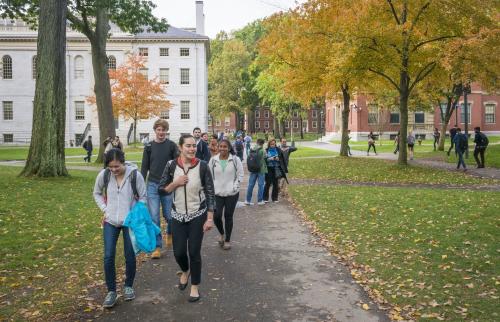If you want more content like this, subscribe to our newsletter.
This week in Class Notes:
-
- Head Start attendees are more likely to graduate high school and less likely to live in poverty than their peers.
- COVID-19 is hardening socioeconomic divides in higher education; low-income students delay graduation because of the pandemic 55% more often than higher-income students.
- Unmarried women experience higher rates of poverty than unmarried men across demographic groups, even after taking into account age, occupation, and education.
- This week’s top chart shows that, for the first time since the Great Depression, the majority of young adults (ages 18-29) are living with a parent.
- Workers really want “contributive justice”—respect, dignity, and social recognition, not just economic redistribution, argues philosopher Michael J. Sandel.
- Finally, check out our new piece investigating how representative national service is of the nation it serves.
Head Start’s implications for later-in-life educational attainment and income
Educational gaps between high- and low-income students become visible before students begin kindergarten. In a 1965 effort to bridge this chasm, the Office of Economic Opportunity created Head Start, a federally funded preschool program for low-income children. According to De Haan and Leuven, Head Start successfully narrows some of the gaps it targets; adults in their early 30s that attended Head Start were 4 percentage points more likely to graduate from high school than their peers that did not attend preschool, and 6 percentage points less likely to make less than the single person poverty threshold. National Longitudinal Study of Youth and adult survey results also show that Head Start benefits women, Black, and Hispanic or Latino preschoolers the most.
How COVID-19 has impacted college students
The pandemic’s health and economic effects cut across and often deepen socioeconomic divisions—higher education is no exception. Aucejo et al. investigate COVID-19’s effect on college students’ experiences and expectations using a survey of 1,500 students at a large public U.S. college. Results highlight COVID-19’s disruption: four-in-ten students lost a job, internship, or job offer; three-in-ten expect to earn less when they’re 35 because of the pandemic; and 13% delayed graduation. While all student subgroups were negatively impacted by the recession, low-income students were 55% more likely to delay graduation due to COVID-19 than higher-income students.
The gender poverty gap for unmarried people persists across demographic groups
Gender equality discussions often place the wage gap center stage, but the related—and vitally important—gender poverty gap gets a smidge less attention. Using the 2018 American Community Survey, Brian Glassman studies the prevalence of the gender poverty gap across demographic groups, broken down by age, education, race, and so on. In every group, more unmarried women than unmarried men live in poverty – but the gap varies. Women experienced the highest rates of poverty (compared to men) among single parents, people without a high school degree, and the unemployed. By contrast, the gender poverty gap is smallest among people over age 65, people with a college degree, and those not in the labor force.
Top chart: The majority of young adults are living with a parent
This week’s top chart from Pew Research Center highlights young people’s living arrangements in 2020 compared to 2019. For the first time since the Great Depression era, more than half of young adults (52%) in the United States are living with a parent.

Choice opinion: What liberals get wrong about work—the importance of dignity
“On the surface, the dignity of work is hardly a controversial idea. No one speaks against it. It is invoked rhetorically to support standard political positions. On the right, some have cited the dignity of work as an argument for cutting welfare, positing that this would make life harder for the idle and wean them from dependence… For their part, liberals have responded to a single-minded focus on maximizing GDP by promoting a greater measure of distributive justice—fairer, fuller access to the fruits of economic growth. But what many workers want even more is a greater measure of contributive justice—an opportunity to win the social recognition and esteem that goes with producing what others need and value,” writes Michael J. Sandel for the Atlantic.
Self-promotion: The representativeness of national service
Whether civilian or military, national service can offer economic opportunity for participants, provide vital service to the country, and has the potential to strengthen civic bonds. But national service isn’t representative of the nation it serves. Black women and four-year degree holders are overrepresented in civilian service, like AmeriCorps, while Black men are overrepresented in military service. In our latest piece, Sarah Nzau and Richard Reeves investigate the gender, racial, and educational representation among servicepeople and discuss policies to promote service for all Americans.
The Brookings Institution is committed to quality, independence, and impact.
We are supported by a diverse array of funders. In line with our values and policies, each Brookings publication represents the sole views of its author(s).








Commentary
Class Notes: The gender poverty gap, COVID-19’s impact on college students, and more
Wednesday, September 9, 2020